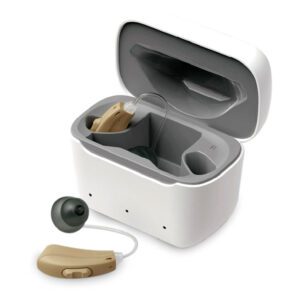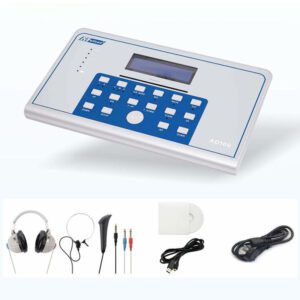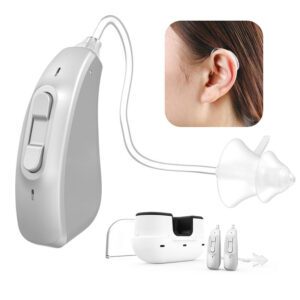hearing Loss is a widespread issue that can greatly affect communication and overall well-being. It is essential to take proactive measures to protect our hearing and maintain good auditory health. This article provides valuable tips and strategies for safeguarding our ears from noise-induced hearing loss.
Limit Exposure to Loud Noises:
One of the most effective ways to prevent hearing loss is by minimizing exposure to loud sounds. Encourage individuals to avoid or reduce their time in noisy environments, such as attending excessively loud concerts or sporting events. In situations where exposure to loud noises is unavoidable, it is crucial to use earplugs or earmuffs to reduce the intensity of sound and protect the delicate structures of the inner ear.
Utilize Volume-Limiting Devices:
With the prevalence of personal audio devices like smartphones and MP3 players, it is important to promote the use of devices with volume-limiting features. These features restrict the maximum volume output, helping to prevent the user from exceeding safe levels and reducing the risk of damage to their ears.
Take Breaks from Noisy Environments:
Continuous exposure to loud noises can increase the likelihood of hearing damage. Encourage individuals to take regular breaks from noisy environments, giving their ears sufficient time to rest and recover. Such breaks can provide a much-needed respite and help mitigate the cumulative effects of prolonged noise exposure.
Practice Safe Listening Habits:
Adopting safe listening habits is vital in preserving our hearing. It is advisable to keep the volume at a moderate level when using headphones or earbuds, as excessively loud music directly into the ears can be harmful. Additionally, taking breaks from extended periods of listening, especially at high volumes, can minimize the risk of potential damage to our auditory system.
Engage in Recreational Activities with Lower Noise Levels:
In recreational activities, it is beneficial to opt for pursuits with lower noise levels. Activities like hiking, biking, or reading offer enjoyable alternatives to constantly being exposed to loud sounds. By diversifying leisure activities, individuals can reduce their overall exposure to potentially harmful noise and prioritize their hearing health.
Educate About the Risks of Noise-Induced Hearing Loss:
Raising awareness about noise-induced hearing loss is crucial in fostering a culture of hearing protection. Promote educational initiatives to inform people about the risks and consequences associated with excessive noise exposure. By understanding the importance of protecting our hearing and the long-term impact of hearing loss on quality of life, individuals can make informed decisions and take necessary precautions.
Encourage Regular Hearing Check-ups:
Regular hearing check-ups play an essential role in early detection and intervention for any potential hearing loss. Even in the absence of noticeable symptoms, periodic visits to audiologists or hearing healthcare professionals enable timely identification of any changes in hearing ability. Early intervention can improve outcomes and facilitate effective management of hearing-related conditions.
Conclusion:
Taking proactive steps to protect our hearing is essential for maintaining good auditory health throughout our lives. By following these tips, including limiting exposure to loud noises, utilizing volume-limiting devices, taking breaks from noisy environments, practicing safe listening habits, engaging in quieter recreational activities, raising awareness about noise-induced hearing loss, and getting regular hearing check-ups, we can significantly reduce the risk of noise-induced hearing loss and preserve our hearing abilities for years to come.




